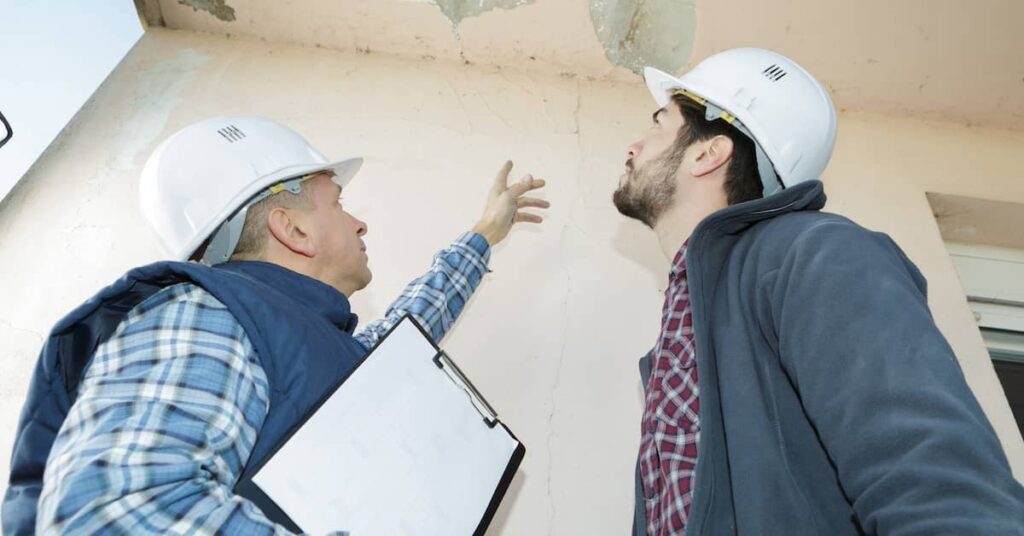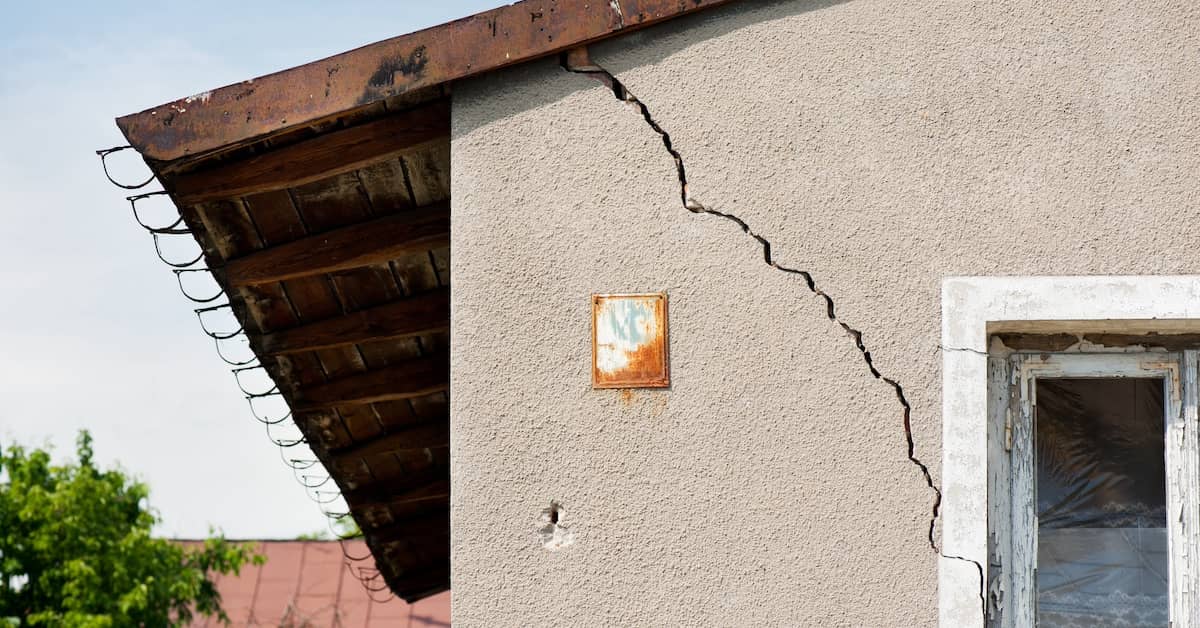
Can I Sue the Builder of My Home?
Can You Sue a Home Builder for Construction Defects?
Construction defects come in a variety of forms—from minor cosmetic flaws to major structural failures—each posing unique challenges and frustrations. In these situations, it is expected to wonder things like, “Can you sue a home builder?” and “What laws govern construction defect lawsuits in Colorado?” It is nice to know that, when these questions arise, Burg Simpson is here to provide the answers you need.
Can you sue a home builder for construction defects in Colorado? Yes, you absolutely can. However, the process may be more complex than simply filing a claim and awaiting compensation. When you encounter construction defects, discussing your options with an experienced attorney is the most reliable way to understand your rights, get a clear view of the legal process, and determine the best course of action for your claim.
You may be entitled to compensation if you face construction defects—no matter their extent. Contact Burg Simpson today at 303-792-5595 to schedule a FREE and confidential consultation and learn how we can help you hold the responsible parties to full account. Located in Denver, Burg Simpson welcomes clients from Highlands Ranch, Aurora, Lakewood, and all surrounding areas of Colorado.
What Is the Colorado Construction Defect Action Reform Act?
The Colorado Construction Defect Action Reform Act (CDARA) creates the framework for construction defect claims. Enacted to streamline disputes homeowners may have with builders, CDARA outlines a clear set of procedures and requirements—for all parties—with an emphasis on resolving issues through negotiation with the hope of avoiding litigation.
CDARA’s primary aim is to strike a fair balance between protecting homeowners from the financial and emotional toll of construction defects while simultaneously safeguarding builders and contractors from frivolous lawsuits. By instituting a structured approach to handling these disputes, the act encourages timely and equitable solutions for issues such as negligent construction, defective building materials, and more.
CDARA includes provisions regulating the construction defect litigation process, including guidelines on how claims should be presented in court, the types of damages that can be sought, and the defense builders may employ. The act also touches on the importance of construction standards, how they play into determining whether a defect exists, and the extent of a builder’s liability when they do.
The Colorado Construction Defect Action Reform Act provides the legal structure for managing the issue of construction defect disputes. However, while CDARA helps promote accountability, transparency, and fairness for property owners and builders, it is more complex than you may imagine. Having an experienced attorney on your side can help ensure you understand your options and act within the parameters outlined by this legislation.
A Closer Look at CDARA’s Pre-Litigation Requirements
The pre-litigation requirements under the CDARA are designed to foster communication and settlement between property owners and builders before court involvement becomes necessary. Understanding and adhering to these requirements is essential for both parties to ensure a fair and efficient resolution (see Colo. Rev. Stat. § 13-20-803.5).
The first formal step in construction defect claims is to send a written notice of the claim to the builder or contractor responsible for the work. This notice must be detailed and specific, outlining each alleged defect, how it deviates from acceptable construction standards, and how it affected you and your property.
Upon receiving the notice, the builder has a legally defined period—usually 30 days—to request access to the property for inspection. This inspection allows the builder to verify the claim, assess the extent of the alleged defects, and determine the most appropriate course of action.
After the inspection, the builder has another set time frame—usually 45 days after the inspection—to present you with a written offer. This offer can take several forms, including proposing repairs to fix the defects, offering financial compensation, or a combination of both. The offer’s specificity must match the seriousness of the defect, ensuring that proposed solutions are genuinely capable of resolving the issues.
Upon receiving the builder’s offer, you have the right to accept or reject it. If the offer is accepted, the claim will proceed with the agreed-upon repairs or compensation. If the offer is rejected, you must provide a detailed explanation for the rejection, which can lead to further negotiations. If negotiations fail and you reject the builder’s final offer, the path to litigation opens.
CDARA’s detailed pre-litigation process ensures that both parties have ample opportunity to resolve the dispute amicably. It also means that, should the case proceed to court, both sides are fully informed of the other’s position and the reasons behind the continued dispute.
Having an experienced construction defect lawyer on your side is ideal at every stage of this process. From the initial letter to assessing the builder’s response to the potential of litigation, having a dedicated legal team on your side helps to protect your best interests and work toward a solution that truly meets your needs.
Possible Damages When Suing a Home Builder
When suing a home builder for construction defects in Colorado, you may be entitled to seek several different types of damages. These include:
- The Cost of Repairs: This may include the cost of materials and labor, professional assessments, and any services required to rectify the defects.
- Reduction in Property Value: This addresses the difference between what the property would have been worth without the defects versus its value with them.
- Compensation for Inconvenience and Temporary Housing: This acknowledges the additional financial and emotional burden placed on you and your family when it becomes necessary to seek alternative accommodations.
- Recovery of Legal Fees: In some instances, Colorado law permits homeowners to recover the legal fees incurred while pursuing a claim against a home builder.
As outlined under Colorado Revised Statutes § 13-20-806, the financial obligation of a builder is limited to the actual damages proven by the property owner. However, the legislation introduces a nuanced exception that broadens the scope of potential compensation under specific circumstances. If it can be demonstrated that a construction professional’s actions not only resulted in a defect but also violated the Colorado Consumer Protection Act, you may be entitled to seek more substantial damages.
CDARA also contains a provision for “treble damages,” a form of punitive compensation that penalizes failure to adhere to accepted settlement or repair offers. Specifically, if a construction professional fails to fulfill the terms of an agreed-upon remedy or settlement, you may be able to claim up to three times your actual damages.
Some construction defect damages are subject to caps, which limit the amount of money you can collect through legal action. During your FREE case review with one of our Denver construction defect attorneys, we will carefully review your claim to help you determine what it may be worth.
Statute of Limitations to Sue a Builder for Construction Defects
The statute of limitations for construction defects in Colorado generally requires homeowners to file a lawsuit within two years after discovering the defect (see Colo. Rev. Stat. § 13-80-104). This means the clock does not necessarily start ticking when the defect occurs, but rather when you become aware of it—or through reasonable diligence should have become aware of it—allowing you to seek redress for defects that may not be immediately apparent but become evident over time.
Statute of Repose
In addition to the statute of limitations, Colorado’s statute of repose imposes an ultimate deadline on when construction defect claims can be filed. This statute provides that no claim can be brought more than six years after the substantial completion of the construction work, with a possible extension to eight years if the defect is discovered in the sixth or seventh year after completion. The statute of repose disallows claims to be filed beyond this period, regardless of when the defect was found.
The relationship between the statute of limitations and the statute of repose can be confusing, with specific circumstances affecting the applicable time limits. For instance, different rules might apply if the claim involves a warranty or if the builder engaged in fraudulent concealment of the defect. This is another reason to discuss your case with an attorney before pursuing a claim.
While six to eight years may seem like a long time, it is always a good idea to discuss your case with a construction defect lawyer as soon as a problem is detected. Waiting can complicate the process and may interfere with your ability to seek the total compensation you are due.
At Burg Simpson, our attorneys have decades of experience in construction defect litigation. We are adept at evaluating the specifics of your case to ensure that your claim is filed within the appropriate time limits. Protecting your rights and securing the compensation you deserve is our utmost priority; timely action is a key component of this commitment.
Burg Simpson Is Here to Help
The attorneys at Burg Simpson understand property owners’ challenges and frustrations when dealing with construction defects. We are dedicated to guiding you through every step of the legal process with honesty, compassion, and an unwavering resolve to help you get the compensation you are due.
By leveraging our extensive knowledge of Colorado law, proven negotiation tactics, and the comprehensive resources of our national firm, we fight to secure significant results in every case we pursue. Choosing our award-winning law firm means placing your trust in attorneys who put your interests first as we work to ensure your voice is heard and your rights are protected.
We welcome the opportunity to meet with you—free of cost and commitment—where we can listen to your concerns, discuss all of your options, and help you choose the best way to seek compensation for the construction defects you are facing.
To schedule a FREE consultation, contact Burg Simpson online or call our Denver office today. Our construction defect lawyers serve Fort Collins, Boulder, Colorado Springs, and all surrounding areas of Colorado.




